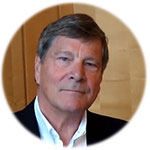
It is that time of year: graduation, commencement, celebration and satisfaction. At UConn, we find myriad ways to celebrate our students, by engaging graduates, their families and friends, our alumni, our faculty and staff. As dean, I find I pay attention to what others say in these settings and invariably learn in the process.
This year, Professor Robert Shiller, 2013 Nobel Laureate in Economics and a Professor at Yale, spoke at our undergraduate commencement and received an honorary degree from UConn. His message was powerful and important and dealt with “Business and the Good Society.” He chose to remind our business graduates, that while some give business a bad rap, it is an engine of growth and promise. Good business propels a rising tide that lifts all boats. He found a nice balance between engaging our thoughts and our emotions. He challenged all of us to engage with our world and to better it. His talk is worth a read.
Let me share three other speeches that I consider landmarks: Steve Jobs, speaking at Stanford in 2005 (video); Ken Burns speaking at Washington University in St. Louis in May 2015 (video); and Pamela Druckerman speaking in France in 2015 (NYT op-ed May 29, 2015). They are very different and remind us that this art-form, the commencement address, is peculiarly American and permits wide liberty to the speaker. That said, the majority of all commencement addresses give life advice, of the form, “reach higher, don’t settle, make a difference.” These three span a broader range.
Steve Jobs was of the “don’t settle” ilk and he did it very well. He had (and has) name recognition and used his life experience to illustrate high aspirations and the value of challenge, struggle and determination. He reminds us that he started numerous companies; he was fired from Apple before re-engaging there and leading it to greatness. While the common reference to his education is that he did not attend college, in his speech he reflects on what he learned about calligraphy at Reed College and how it enabled several key features of the Macintosh computer. “Your work is going to fill a large part of your life, and the only way to be truly satisfied is to do what you believe is great work. And the only way to do great work is to love what you do. If you haven’t found it yet, keep looking. Don’t settle. As with all matters of the heart, you’ll know when you find it,’’ he said.
Ken Burns is a filmmaker and historian. His speech is lyrical and beautiful. It is replete with aptly chosen quotations. He celebrates Abraham Lincoln and Mark Twain, both of whom are important in the history of his core topic; our inability as a nation to resolve the racial tensions that are centuries old, and in spite of great progress, remarkably persistent. Two quotes stand out:
“You have prospects and real dreams, and I wish each and every one of you the very best,” Burns said. “But I am drafting you now into a new Union Army that must be committed to preserving the values, the sense of humor, the sense of cohesion that has long been a part of our American human nature.” While Jobs spoke to the individual and the potential of the individual for self-satisfaction; —Burns spoke to the collective and created a sense of a collective call to action as an “army” to fight racism and foster community.
“The Latin motto of the United States is E pluribus unum, and that means ‘Out of many, one.’ But we live in a time as the late historian Arthur Schlesinger Jr. used to complain, where we suffer today from too much pluribus and not enough unum.’
The final speech I want to share with you is by Pamela Druckerman, delivered in Paris and described in her op-ed piece in the New York Times on May 29, 2015. She faced a problem in that the French typically mail the diploma with little pomp and circumstance. She notes that an instructor at a top Parisian institution invited students to watch the Steve Jobs speech that I referred to earlier. Pamela reports that the “French students were unmoved by this speech calling it ‘completely disconnected from reality’ and ‘so Californian.’
Torn by these conflicts she decided to focus her talk on a French expression: ‘Vous — allez trouver votre place,’ which roughly means “you will find your place.” It is important to note that she knew her audience. They were graduating from an art and design school. Her advice focused them on their art. She gave behavioral advice…Do this not that; and it will all work out….you will find your place. More specifically she talked about the importance of being there, being present and engaging with opportunity. She talked about being open to your muse and realizing that you need to be passionate about your craft, and open to the reality that every moment can confront you with a new perspective or challenge.
For me these are each great graduation speeches, but they underscore an important point. We are a diverse society. As individuals we aspire to different things. A critical step in making good choices is to know who you are and what you want. I deliberately did not say, know what will make you happy, because not everyone wants to be happy. Strange but true.
But these four commencement speeches underscore several notions. Shiller focused on his audience of graduates from the UConn School of Business and extolled them to help realize the potential benefit of business in improving lives. Jobs urged his audience to reach higher and to succeed. Burns emphasized that the world can be a better place and it is our collective responsibility to make it better. Druckerman focuses on individual behaviors for artistically inclined individuals to help them succeed.
One size does not fit all. That is a simple but powerful observation in a diverse society like ours. Defined narrowly in the USA, the truth is that our population is diverse in ability and in desire. These messages, differentially designed for Stanford high-achieving wealth accumulators or Parisian artists reflect diverse audiences. But within either of those subsets of people there remains a broad range of interests, abilities and goals. So for me, the ultimate graduation advice is to come to know yourself. Know what matters, to you. Know your strengths. Know your weaknesses. Be conscious. Make choices.

John A. Elliott
Dean, UConn School of Business
John A. Elliott is dean of the UConn School of Business, as well as the Auran J. Fox Chair in Business. John is a certified public accountant with professional experience as an auditor and consultant. His research is concentrated on the role of accounting information in financial analysis and contracts. When not attending his son’s athletic events or visiting his daughter and her family, John and his wife, Laura enjoy travel. John is also an avid fan of the UConn men’s and women’s basketball teams. View Posts